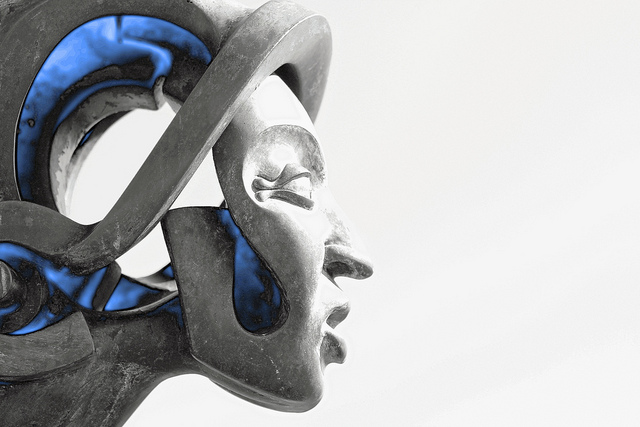Does technology actually make us more productive?
Technology Vs. The Human Mind
New technologies have become part of our everyday lives. It’s unlikely that we’ll go back to a life without mobile phones, computers and social media. Our human nature is to constantly move forward, evolving into a sophisticated world where the technology we develop facilitates and helps all manner of our daily tasks; but they can also make us feel exacerbated, under pressure and constantly in demand.
So in this world of connection, how often do we find time truly for ourselves? Finding time to disconnect from technology and to create some space for a peaceful life can often be difficult.
Everyone likes “likes.”
Recent research has shown that checking emails, messages or even Likes on your latest Facebook post releases dopamine in the central nervous system, putting our brain under an unsuspected and unusual form of addiction.
Psychologist Susan Weinschenk explains:
“The latest research shows that dopamine causes seeking behavior. Dopamine causes us to want, desire, seek out, and search. It’s not just about physical needs such as food, or sex but also about abstract concepts. Dopamine makes us curious about ideas and fuels our searching for information. Dopamine starts us seeking, and then we get rewarded for seeking which makes us seek more. It becomes harder to stop looking at email, stop texting, stop checking our cell phones to see if we have a message or a new text.”
Effectively, dopamine works as stimulation for our brain, and in dose levels is good for us, but as with anything in life, too much of it can cause problems with addiction and always wanting more. If harnessed and used correctly, it can be used to leverage and enhance our life, rather than become a personal weakness that freezes us away from the present.
Meditation is one of the most powerful and yet simple tools to alter our brain in many positive ways, and helps prevent from various behavioral addictions.
It is the process of relaxing your entire nervous system and brain, helping to promote a theta brain wave state where everything is meditative and relaxed. In this state we releases serotonin and oxytocin hormones, providing a feeling of calm and contentment, which serenely develops serenely new thinking patterns and ideas.
Once relaxed and fully connected to our deeper desires, we are less inclined to follow addictive behaviors, projected wishes or expect more, and instead it gets us ready to do, have and be what we want.
Secret screen addicts.
Devices have taken over our daily lives and with they’ve brought a surprising friend along with them, the little blue light!
These screens we are staring at all day long, whether it is on our smartphones, computers or tablets, produce the so called blue-light responsible for mental health alterations, also known as the Computer Vision Syndrome (CVS).
The blue wavelengths produced by new technologies appear to be beneficial during daytime, boosting our attention, reaction time and mood. It’s the same “natural” blue light that tells us to get up and start moving in the morning, keeping our body clock aligned with the environment. However looking at the light sources constantly, and too closely, can cause strain and stress.
While focusing excessively on our devices and never taking time to look away, the same way we might do reading a magazine or a book, our brains can start to feel over-stimulated, deregulating our sensitive hormonal balance. When this happens our nervous system promotes the release of cortisol, a hormone associated with feelings of anxiety, depression, insomnia and high blood pressure.
So when you regularly check your phone at bedtime, or find yourself staring at your computer late at night, you are actually altering your body clock and deregulating the natural process by which your mind switches on and off.
Practicing meditation for just 20 minutes a day will not only help you release the strain from your eyes, but it will help you feel calmer and significantly regulate your hormonal system, creating a better biological balance. Your cortisol levels will be lowered and the lack of external stimulus will help you reach a healthier sleep. With regular practice you can slowly emancipate yourself from your virtual life and will move serenely toward achieving your personal goals and desires.
Create your creativity.
According to a recent study ran in February 2014, by neuroscientists of University of California, stressing yourself out when you wake up by checking emails and messaging can actually damage the brain structure and its connectivity in the long run.
This results in lowering the amount of grey matter in our brain and thus affecting our learning and creative ability.
When we meditate, our pre-frontal cortex, which is home to so much of our creative thinking, becomes much more active. It can actually increase in size and grows thicker the more we practice.
Body and mind are well set to start off a new productive day, going through each step one at a time. We are ready to perform daily tasks efficiently and are open to new, creative ideas.
You think your mind multi-tasks but it doesn’t.
Multi-tasking is something we’ve long been encouraged to practice—it’s hard to resist the temptation to use multiple devices, confident that we’re performing to the best of our multi-tasking ability. But it appears that our brain is actually unable to multi-task!
When we think we are doing several things at a time we are actually “context switching”—quickly switching back-and-forth between different tasks rather that actually doing them at the same time.
The Book Brain Rules of John Medina explains how detrimental “multi-tasking” can be nowadays:
“Error rate goes up to 50% and it can take you twice as much time to do things properly.”
The main issue is that while multi-tasking we are splitting our brain resources; we’re giving less attention to each task, and probably performing less on all of them.
The time has come to relearn how to focus on one thing at a time. Taking a moment to relax and redefine our objectives is crucial for better performances and achievements.
Technologies might be a substitute for many things, but they will never substitute the power of the human mind. Learning to harness its full potential is within all of us, all we need to do is reconnect with ourselves, not with our latest iPhone.
Love elephant and want to go steady?
Sign up for our (curated) daily and weekly newsletters!
Author: Marie Boucaut
Editor: Catherine Monkman
Photo: Keoni Cabral/Flickr

 Share on bsky
Share on bsky







Read 0 comments and reply